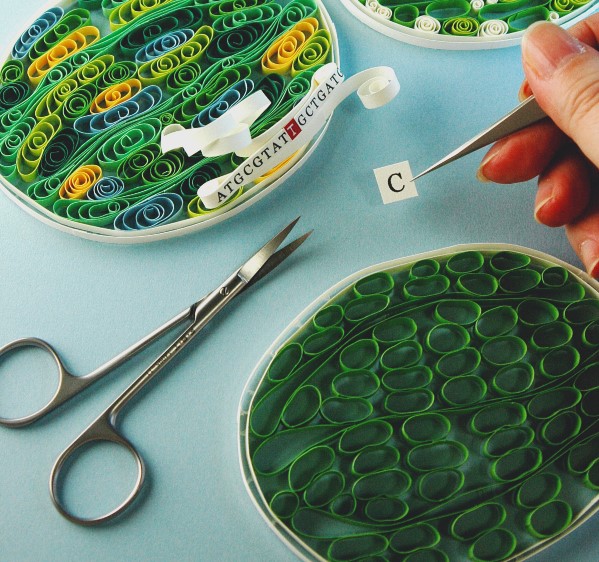
Japanese Researchers Develop New Gene-Editing Tool to Create Non-GM Crops
July 7, 2021| |
Researchers from the University of Tokyo have developed a new approach in gene editing by modifying the chloroplast genes of plants without leaving traces of genetic engineering technology.
The researchers combined the gene editing tool, TALENs (Transcription activator-like effector nucleases), with an extra "chloroplast-targeting" signal and called it ptpTALECDs. The goal of the study is to create uniform, inheritable modifications to only specific parts of chloroplast DNA. The pairs of large TALENs protein and the chloroplast-targeting component must be expressed simultaneously as a single unit from the nuclear DNA in designing ptpTALECDs DNA sequence. The sequence is then inserted into the Arabidopsis plant and bred with non-modified plants.
The researchers found the first-generation offspring's nuclear DNA has been permanently altered to contain the ptpTALECDs sequence. The next generation of plants inherits nuclear DNA naturally which produces some seeds with ptpTALECDs sequence while other seeds do not have the sequence. However, plants always inherit the whole chloroplasts completely from their female parent. This means that the next generation of plants will inherit their mother's modified chloroplast DNA regardless of what nuclear DNA they inherit.
The results of the proof-of-concept experiments show how the mechanism of ptpTALECDs could produce non-GM plants on their second generation or any of their future offspring. The approach only makes point mutations that will still ensure the quality of the varieties of crops with better acceptance from farmers and consumers.
For more details, read the press release of the University of Tokyo and the journal article in Nature Plants.
| |
You might also like:
- Pocket K No. 59: Plant Breeding Innovation: TALENs
- What are TALENs?
- Breakthroughs in Science Using TALENs
Biotech Updates is a weekly newsletter of ISAAA, a not-for-profit organization. It is distributed for free to over 22,000 subscribers worldwide to inform them about the key developments in biosciences, especially in biotechnology. Your support will help us in our mission to feed the world with knowledge. You can help by donating as little as $10.
-
See more articles:
-
News from Around the World
- Can Gene Drive Eliminate Vector-borne Diseases?
- Researchers Combine Resistance Genes to Improve Wheat Yields
- Cow's Gut Microbes Can Degrade Three Types of Plastics
- Drought Tolerant Rice Comparatively Safe With Non-GM Counterpart
- Study Shows Information Beyond Genetic Code is Stored in Plant Sperm
- Wageningen Scientists Discover how Potato Blight Pathogen Penetrates Plants
-
Plant
- Russia's First Gene-Edited Calf Turns One
- Study Reveals Role of OsMTD2 in Rice Pollen Tube Elongation
- Scientist Introduces CRISPR 3.0 System for Highly Efficient Gene Activation in Plants
- Japanese Researchers Develop New Gene-Editing Tool to Create Non-GM Crops
- Scientists Propose Ethical Guidelines to Assess GM, GEd Organisms
-
Health
- Facemask Detects COVID-19 Virus in 90 Minutes
-
Read the latest: - Biotech Updates (January 21, 2026)
- Gene Editing Supplement (January 28, 2026)
- Gene Drive Supplement (February 22, 2023)
-
Subscribe to BU: - Share
- Tweet

